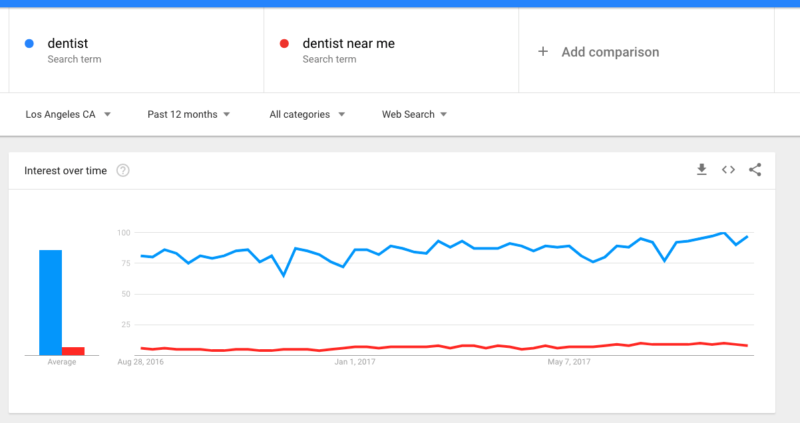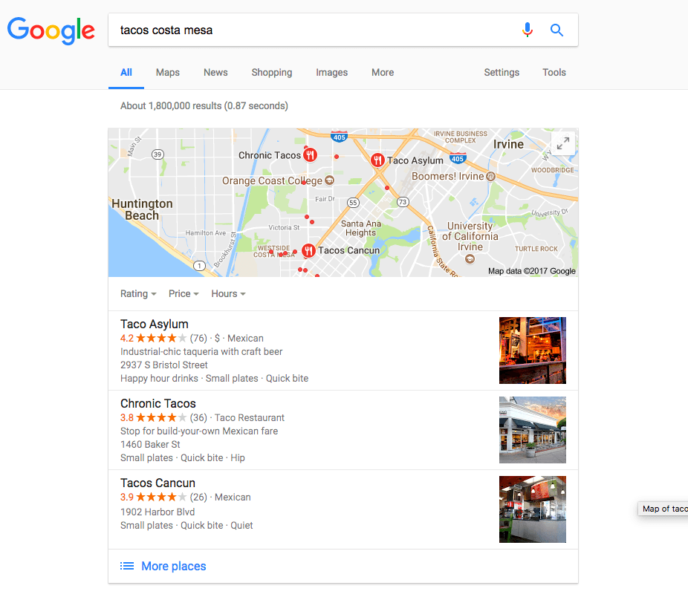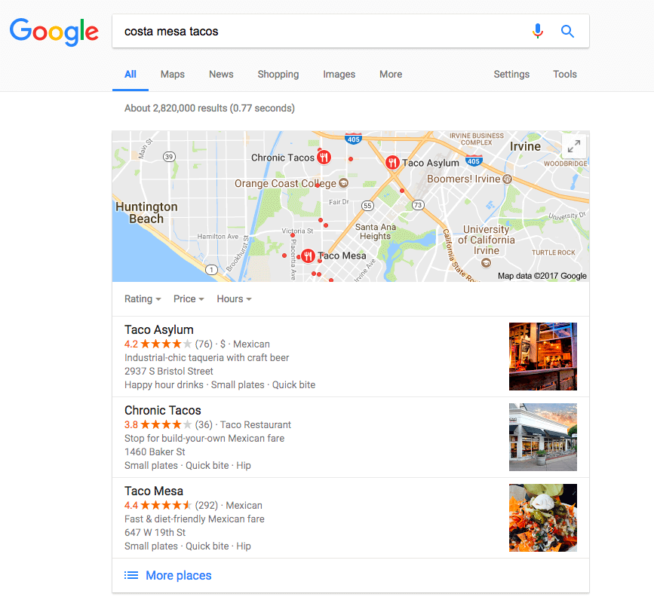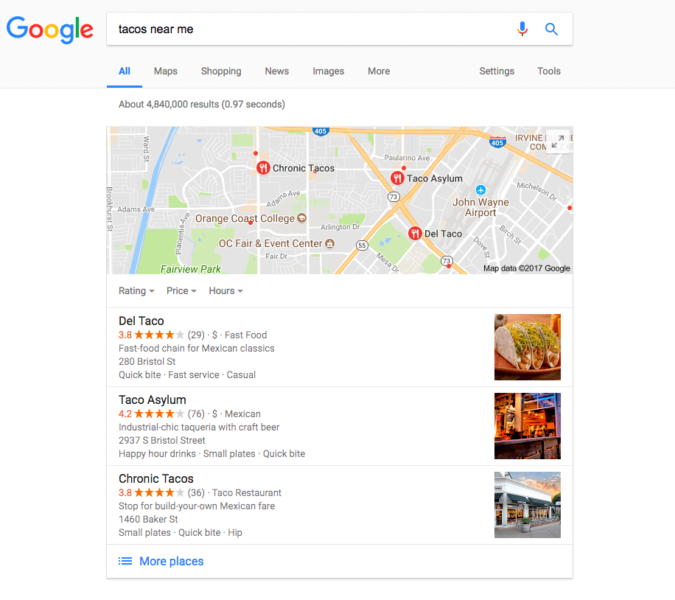
Last week, Google declared that the “near me” search query and other “geo-modifiers” (e.g., ZIP code, city name) were, if not dead, then certainly not worth spending your valuable SEO time worrying too much about:
But, as you can see through Google Trends, it’s not just that “implicit” local search queries (searches for local places without the local qualifier) are growing rapidly — it’s that they have always had a much higher base volume as well.

Source: Google Trends
So, we get it — the search term “tacos” is a better term to target than “tacos costa mesa.” However, Google treats implicit/explicit/”near me” searches differently. Just look at these different results (searches were all done from the same location with an incognito browser):
Tacos (located in Costa Mesa, CA)

Tacos Costa Mesa

Costa Mesa Tacos

Tacos Near Me (located in Costa Mesa)

While there’s overlap, literally none of the results above are the same. That tells us that Google evaluates all of these queries differently. Not only that, but according to our 2016 Local SEO Ranking Factors study (2017 version coming soon), it looks like Google is looking at different ranking factors as well.
Here’s how various factors correlated with high rankings in the Local Pack for implicit and explicit local search queries:

So, this requires a more holistic approach to location-based SEO. Local SEO isn’t just about fixing data accuracy problems, it’s about making sure that clients are effectively optimized for the myriad terms and paths that will generate them business.
That means implicit geo-location queries like “tacos” may have the highest search volume and best growth opportunity, but if you’re skipping other term variations, you are leaving money on the table.
For example, here is the monthly search volume for these searches in Pleasanton, Calif.:
Tacos — 210
Tacos Near Me — 140
Tacos Costa Mesa — 50
Costa Mesa Tacos — 10
If you are only focusing on “tacos,” that’s 210 monthly searches, or 51 percent of the potential traffic out there for core taco-related terms (and there are likely hundreds of long-tail “taco” queries for a city, each with their own unique results). Now, start applying that to, say, a 100-location business, and that’s 21,000 potential customers you are trusting Google to send to the right place.
This is part of the reason why we treat ALL these terms as a “taco” search. Because given the particular searcher, their search behavior, and proximity to your location, they could theoretically be engaging in any of these searches.
By the way, the #1 tacos-related search term?
Tacos Nearby — 590
So I wouldn’t abandon “near me” optimizations just yet.
Contributing authors are invited to create content for Search Engine Land and are chosen for their expertise and contribution to the search community. Our contributors work under the oversight of the editorial staff and contributions are checked for quality and relevance to our readers. The opinions they express are their own.



